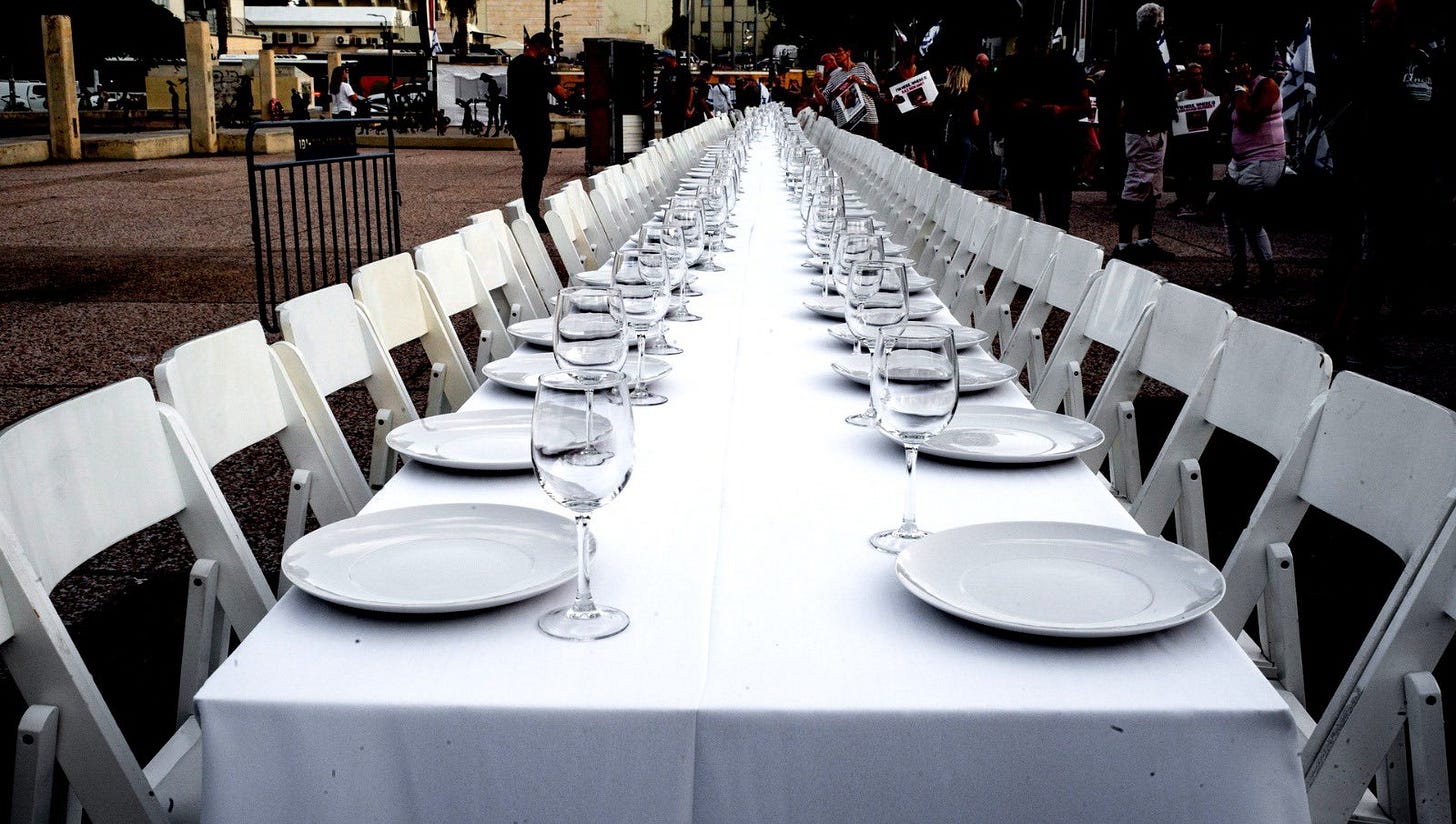Abel the Prophet
You can keep Elijah. I talk to Abel.
Then God said, “What have you done? Listen: your brother Abel’s blood cries out to Me from the ground!" — Genesis 4:10
Everyone knows about Elijah. Elijah visits you on Passover night and drinks a little wine. He attends every circumcision. He helps people at their worst moments, always in disguise.
You can keep Elijah. I talk to Abel.
At night, I leave a glass of wine for him on the kitchen counter, in case he is thirsty, and also a knife, in case he would like to avenge his own murder. In the morning, the wine is always gone, but the blade is always cold and sterile.
*
Elijah is always slipping out. You’ve always just missed him. I suppose it’s because he didn’t quite die, but was only deported from this world on a chariot of fire; he returns periodically and leaves again before it is noticed. “Who were you talking to?” I say and the other rabbis say, “It was Elijah, you must have missed him, and anyway it was a private conversation.” But Abel is always here, in the topsoil, under every footprint. Elijah returns because he left the world without dying; Abel returns because he introduced death to the world. Aristotle said that the world lasts forever; we said that the world began. Abel comes between them and says: the world began but my death is forever. There was no other way.
*
At night Abel comes to teach me Torah. “There is pain everywhere,” he says. “Can you hear it?” It is very quiet outside. A dog barks in the distance. Somewhere far away someone is practicing the violin. I furrow my brow. “I can’t—“ “Listen closer,” Abel said, and closes his hand over my eyes. Yes, there is something else—in a cold and remote place, very faint. Someone is crying—sobbing. Abel takes his hand away and I look at him, puzzled, my face saying, “Who?” A smile is trapped in the corners of Abel’s mouth; he gestures, sticking his chin out towards me slightly and turning his eyes up. “He’s never stopped,” Abel says. The next night I heard it again. It is always there now. Like a ringing in the ears.
*
Once I met Abel at a carnival. My children were there. “Children, do you know who this is?” I said, and bring them to his hand. They do it neutrally; to them he is a distant relative they cannot wait to forget. I make a note to remind them of this moment when they are older and can understand.
“What brings you here?” I said.
He shrugs. “It feels like home,” he says. He is holding candy floss on a stick. “Also, Elijah never comes here. No circumcisions to attend.”
We look together at the feats of strength. A man steps up to a plate with a comically large hammer; he is not muscular, but when he brings it up over his head and down on the plate it feels powerful and slightly dangerous anyway. The family stands at a safe distance behind him, cheering him on. Abel’s eyes suddenly begin to unfocus and I feel that he has gone somewhere else inside. I look down, and I notice that he is not wearing any shoes. His toes curl into the dirt.
“Do you ever speak with God?” I asked.
“Yes,” said Abel. “I spoke with God yesterday. We speak often.”
“And what was God doing?”
“What do you mean? He was speaking to me.”
“That’s all?” I said, confused. “Only speaking to you? Not tying crowns to Torah scrolls? Not commenting on world events?”
Abel shakes his head. “No. I always have God’s full attention.”
*
When the night of Passover is almost over, I get up to open the door so that Elijah can join us, just for the end. “Pour our your wrath on the nations who do not know You—“ I recite. “God knows they deserve it.” There is nobody there; cold wind howls into the room for a moment, chilling everyone, and I shut the door quickly. Inside, Abel is staring at Elijah’s cup, which is always full. “Red or white?” I ask him for the fourth time that night, a bottle in each hand. He shakes his head again. He looks at the base of my glass, where a few drops have been spilled. Abel presses a forefinger into one, brings the finger to his lips. He closes his eyes. “I have enough,” he sighs. “I am never full, but there is always enough."



The image of Hashem in tears reminds me of those who blame our Creator for all the evils perpetrated on us over the centuries often in H's name. They conveniently forget that we were promised survival of Judaism as a people but not as particular individuals. Free will is given but too often tragically abused. Maybe H' grieves over that gift?